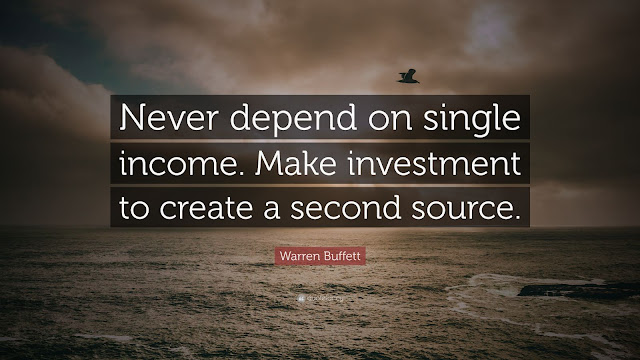Baby Step 3 - Saving 3-6 months of expenses for an emergency fund
Congratulations on completing your debt snowball! Now it's time to move to Baby Step 3.
Baby Step 3 is where you put 3-6 months of expenses into savings or a money market account as a fully funded emergency fund.
Rachel Cruze, Dave Ramsey’s daughter, says that a good rule of thumb is: “The more stable your income and household are, the less you need in your emergency fund.”
The three-month guideline is mostly for those in salaried
positions who have a secure or steady income. So, if you are in a two-income
home and or have been at your job for more than three years, then a three-month
emergency fund is ideal for you.
If your income is not stable, i.e. if you have an one income
home, you’re self-employed, you earn straight commission, if you have an
irregular income, or you fear that there is a possibility you could lose your
job in the future, you should consider trying to save six months’ worth of
expenses. If someone in your home has a chronic medical condition that requires
frequent trips to the doctor, you should also consider expanding your emergency
fund to six months instead of just three.
In order to calculate your expenses, go back to your
budget. Add up all of the expenses and
that number will determine what your emergency fund should be.
The big question everyone wants to know is where should I
keep my emergency fund? The thing is you
want to be able to get to it quickly but there is no harm in it gathering
interest while it waits for an emergency to crop up. Rachel Cruze recommends a
simple savings account connected to your checking account. Another option is a money market
account with check writing privileges or a debit card connected to it. There
are also online banks that you can research interest rates for. Your money can
be placed there and earn interest while still being able to be transferred
quickly to your bank account.
The final question is when should you use your emergency fund? Rachel Cruze recommends that you ask yourself three questions before you decide to dip into your emergency fund.
1. Is it unexpected?
2. Is it necessary?
3. Is it urgent?
Remember, the key points in saving for an emergency fund
are: Make a budget, set a savings goal for each month, and adjust your monthly savings
goal as needed (you may be able to save more some months than others).









Comments
Post a Comment